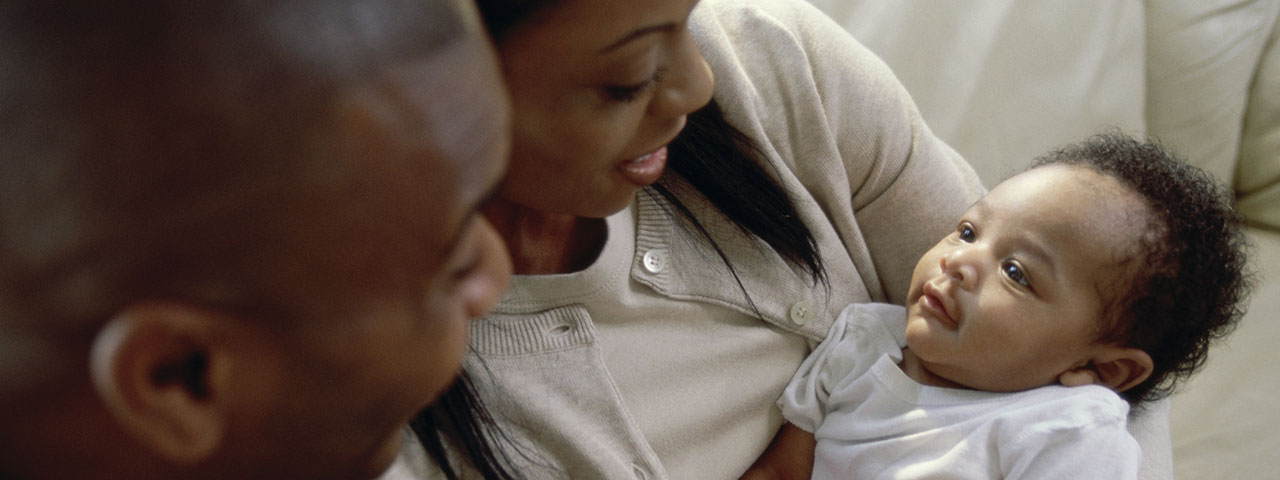Language Learning Begins at Home
- Tweet

Young children learn language at an incredible pace. The brain networks underlying many language skills are already in place when a baby is born, and a considerable amount of language learning takes place in the first year of life. Even before a baby can talk, the areas of her brain related to language are developing rapidly and absorbing new information.
Language is a social process; talking to your baby is teaching! Tweet this!As adults who mastered language long ago, it’s easy to forget the complexity involved in acquiring language. But consider how much a baby has to learn before she can understand what adults are saying: First, she must learn to decode the steady stream of sounds that make up everyday speech—learning to segment it into patterns of individual words. Then she begins the task of comprehending what these sounds mean. Next, she has to learn to accurately reproduce these sounds to communicate verbally.
With this in mind, it’s hard to believe that most children utter their first words between 8 and 14 months of age. For a while, they add new words slowly. But soon a dramatic increase takes place — usually around the time they know about 50 words. This has been called the vocabulary spurt or vocabulary burst. By 24 months, the average vocabulary is 300 words.
Children’s language development depends upon the words they hear at home.
Because early experiences play a critical role in development, they can have long-lasting effects on a child’s well-being. Infants and toddlers need exposure to positive influences that promote the skills they will need to succeed in school and in life.
This is especially true for language development. Throughout early childhood, the amount and variety of language children hear at home (and later, at school) is strongly related to their language development.
But language development is a two-way street: it’s not just about making sure your child hears the right amount and variety of words. The amount of verbal interaction with your child is as important as the amount of language you use. It means talking with him and not just to him.
Interactions with parents and caregivers create the environment in which children can begin to learn the language they hear adults speaking. Language is a social process, and a child’s language environment is the foundation for the development of the early language and literacy skills necessary for children to be ready for school.
Research shows that the amount and quality of speech that parents use with their child are among the strongest influences on his language skills, especially before age three.
Sensitive responsive parenting during a baby’s first year is associated with better language comprehension, earlier achievement of language milestones, and faster growth in language skills over the first three years of life. For example, when parents use a generous amount of questions and a variety of words, their children develop vocabulary more quickly.
Shared reading can strengthen language development.
Making a shared reading routine and sticking to it ensures that your child is getting the speech input he needs. Reading books with your child increases the variety of language he hears, since it introduces him to words that he may not hear in everyday conversation.
Responsiveness and sensitivity during reading is critical. When children are allowed to take the lead, reading is more likely to be fun and to foster children’s interest in books.
Our youngest children depend on parents, communities and policy makers to ensure that they have the opportunity to grow into stable, healthy and productive adulthood.
Throughout May, we’ll be taking a closer look at the importance of early language development, and we’ll examine some ways in which all of us can shape the future of our community by fostering strong language development among our children.
